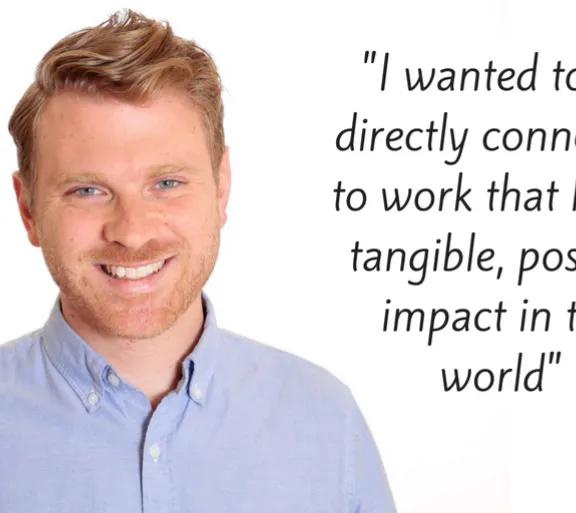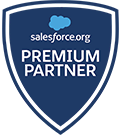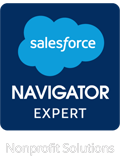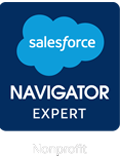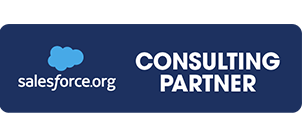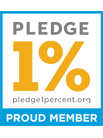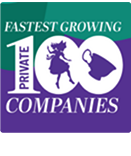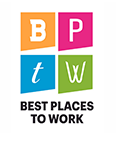Get to know an Idealist: Brent Shively
At Idealist Consulting, we are always looking for people who are passionate about driving change - both for clients, but also for themselves in their own career. Lead Client Success Manager Brent Shively is a prime example of what a great worker, colleague, and leader should be.
Today, Brent works with clients to maximize Salesforce adoption and increase the impact they can have through the platform.
June 2018 marked four years that Brent has been with Idealist Consulting and we were curious to learn what changes he’s seen in that time. Let’s get to know Brent Shively!
How did you first get involved with nonprofits?
I had a fair amount of exposure to nonprofits growing up, but it was exclusively at a small, local level since I grew up in a small town in Missouri— primarily volunteering with Meals on Wheels, senior centers, community organizations, and various cleanup efforts.
I originally went to college majoring in Music Business but, even though I loved music, I felt that I wanted my professional life to be focused on something bigger than entertainment. I wanted to be directly connected to work that had a tangible, positive impact in the world, which led me to volunteer for nonprofits in Nashville and ultimately changing my major to Social Entrepreneurship.
I heard a rumor that you meant to apply to the job site Idealist.org instead of Idealist Consulting. True?
Sad but true. To be fair, the wording on the job post made it seem like this was a consulting arm for Idealist.org. Thankfully, Idealist Consulting still decided to talk with me.
What was your first role at Idealist Consulting? How did that evolve into what you do now?
My first role at Idealist Consulting was a Sales Associate, and it was a full on entry-level position covering everything from calling new leads to basic partnership management. Fairly quickly, I wrapped my head around the core tenants of Salesforce plus NPSP (Nonprofit Success Pack) and began scoping projects for smaller nonprofit organizations with big dreams.
Within six months, I had become a Solutions Analyst and was regularly scoping projects and self-educating on the platform and ecosystem. As a rough guess, I have probably scoped between 700-900 Salesforce projects over four years.
Another core component of the job was to provide account management and project support when necessary, and this honed my communication skills and ability to dig into details when any bumps arise along the way. Between this combination of experience and a deep understanding of how nonprofits operate, I’ve moved into the Lead Client Success Manager role.
How was Salesforce different four years ago? What’s the biggest difference between then and now?
Fours years ago, the platform was a bit less turnkey than it was today, and in some respects, there was still quite a bit of reliance on coding to achieve a company’s goals for the platform, particularly when it came to workflows. The evolution of the ability for an administrator to take and expand automation without code has been a huge leap for usage of the platform in general.
There’s been a lot of shifts and improvements to the platform over the years, but the most seismic (and obvious) difference is Lightning. What I like most about it is the approach to democratizing control over the user interface by using a more commonly known coding language, Java. It was not just a simple adjustment into how things look; instead, Salesforce build a framework that lets companies and organizations cater their system even more to their needs. It’s certainly in line with the ethos of Salesforce, but it’s a huge change.
Who are some of your favorite organizations you’ve worked with over the years?
Oh man, this is really putting me on the spot. Strangely, I sort of have scopes I’ve really enjoyed creating because I got a chance to dig into how the organization operates and really understand where they can see improvements by a system shift.
But if I had to name drop who comes to mind, I would say Grounded Solutions Network, Idaho Conservation League, Child Care Aware of Washington, The Steel Yard, Oregon Humanities, and the Campaign for Black Male Achievement.
What’s the most satisfying part of your work?
I’ve felt most satisfied in my work whenever an organization has successfully implemented Salesforce and understood the concept of ownership for that system moving forward, then builds a structure for supporting it. We have a lot of preconceived notions about systems, specifically that they should just work. But when you look at some of the largest and most complex systems we interact with on a day to day basis, you’ll find that there is an enormous amount of resources, people or financial, that go into making that system appear seamless.
The connecting thread to this is talking with people who are really excited about the work that goes into making systems function well because it ultimately provides an exponential impact to the company or organization whether that is the number of kids in an art class or a sales pipeline.
Humanizing data really motivates me and is satisfying when you think about the positive impact those nonprofits are making on the world.
What’s something you’ve learned, in general, or about yourself, through working at Idealist Consulting?
After working at Idealist Consulting for four years, I’ve learned that even though I am an introvert, I really enjoy talking to people about what they do and how they do things. I played with Legos quite a bit growing up, and I think I’ve got an imprint on my brain (not literally) which has led me to want to build and architect how something is built.
Another general lesson I’ve learned through my experience here is a classic technology lesson. There’s often a core influencer for a problem when it comes to technology, and it’s boiled to down to either people, process, or the technology itself. The third one receives the most blame, but more often than not, it’s people who lack an understanding of how the technology works or the process is simply not efficient and logical.
What’s a goal for year five?
Sitting down and taking my Salesforce admin cert! It’s been a goal of mine that I’ve wanted to achieve, and even though I’ve had a ton of exposure and have worked on the platform, the cert has remained elusive. Maybe this will be the year.
Any advice for those looking to work for Idealist Consulting?
To be successful at Idealist Consulting, you will need the patience and empathy of a nonprofit, while also having the drive towards improvement and focus on efficiency of a private sector company. It’s intentionally dichotomous, but it’s an important mentality to have.
Want to work for Idealist Consulting?
Are you a Salesforce or Marketing Automation consultant looking to for a workplace that values human connection? We’re hiring! Check out our careers page.


